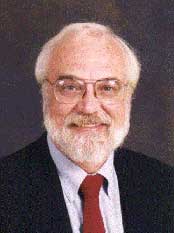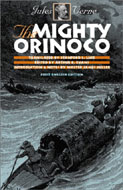Prof. Art Evans Discusses "Jules Verne Renaissance" in Smithsonian Magazine
February 27, 2005
 February 27, 2005, Greencastle, Ind. - "'There's a Jules Verne renaissance going on, and it's building,' says Arthur Evans, a professor of modern languages at DePauw University in Indiana and a self-described Verne freak," notes an article in the March 2005 issue of Smithsonianmagazine. "Backed by scholarly articles and new translations of Verne's work, Evans and other revisionists argue that Verne's writings are more complex, more skeptical and more politically charged than is commonly supposed," writes Doug Stewart.
February 27, 2005, Greencastle, Ind. - "'There's a Jules Verne renaissance going on, and it's building,' says Arthur Evans, a professor of modern languages at DePauw University in Indiana and a self-described Verne freak," notes an article in the March 2005 issue of Smithsonianmagazine. "Backed by scholarly articles and new translations of Verne's work, Evans and other revisionists argue that Verne's writings are more complex, more skeptical and more politically charged than is commonly supposed," writes Doug Stewart.
The story continues, "Most English-language editions of Verne's novels are public-domain texts more than a century old. Victorian translators blithely removed references to Darwin, politics, the ills of British imperialism -- and much of Verne's humor. Entire chapters were literally lost in translation. 'For the first time,' says Evans, 'people in the English-speaking world are seeing what Verne actually wrote, as opposed to the bowdlerized hack translations that have been available previously.'"
"Virtually all his books are placed in the present or the immediate past," Dr. Evans tells Smithsonian of Verne's works. "There are no ray guns or bug-eyed monsters. He wrote Industrial  Age adventure stories." Stewart adds, "In fact, though Verne deserves credit for a certain amount of technological clairvoyance, critics today point out that he is most properly characterized as an author of scientific fiction, in that he made use of actual achievements like the newly invented submarine."
Age adventure stories." Stewart adds, "In fact, though Verne deserves credit for a certain amount of technological clairvoyance, critics today point out that he is most properly characterized as an author of scientific fiction, in that he made use of actual achievements like the newly invented submarine."
Read the complete article, "Prescient and Accounted For," at the magazine's Web site by clicking here. Evans, professor of modern languages and managing editor of the journal Science Fiction Studies at DePauw, has been called America's "Most Prominent Jules Verne Scholar" by Forbes magazine. In 2003, he published the first English translation of Jules Verne's 1898 novel, The Mighty Orinoco. Read more about the professor in this previous story.
Source: Smithsonian
Back